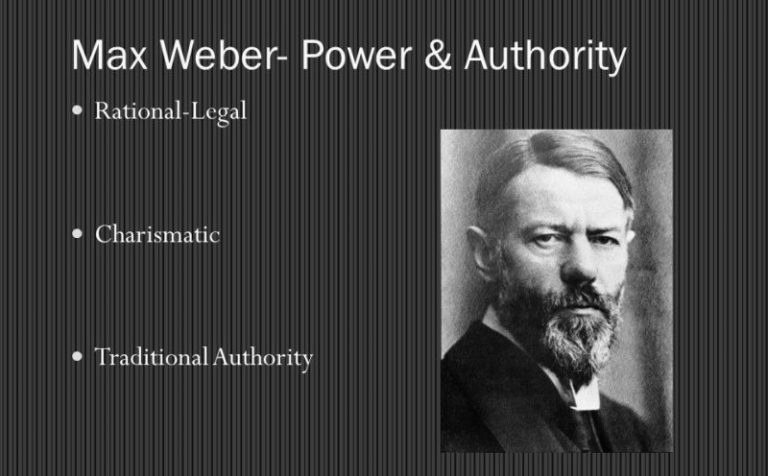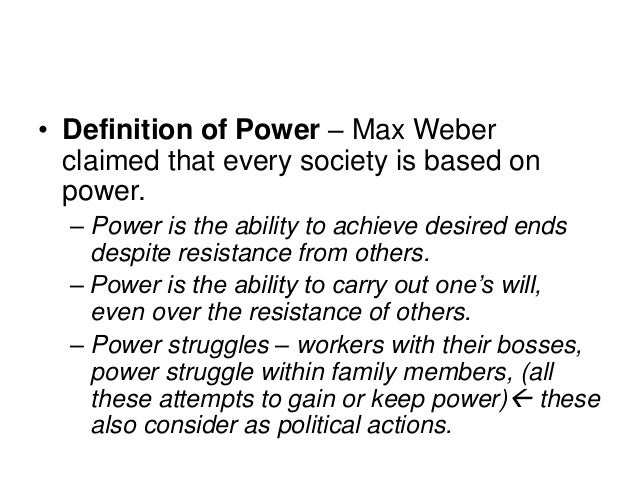
In order to make this definition more useful in the study of history and society, Weber suggests domination as an alternative, or more carefully defined concept. This is a very broad definition and includes a very wide range of types of power. Weber defined power as the chance that an individual in a social relationship can achieve his or her own will even against the resistance of others. Parties may be formed to rationalize some of these procedures, and pursue goals of the group. It would appear that this is not so much for economic reasons as an attempt to perpetuate status distinctions constructed on particular views of what are appropriate gender relations. For example, some professions which have been male dominated have excluded women. The restrictions placed on entry may be partially economic, but they are also partially social in nature, having to do with status honour and prestige.

The professionalization of the medical profession in the twentieth century could be an example of this and, in general, the professionalization of any occupational grouping is a means of achieving these ends. That is, if resources are scarce, forming a group which is able to exercise some control over the distribution of these resources may be a means of increasing the power of that group in society. Second, people who have limited power to begin with may form a status group in an attempt to gain greater control over economic and social resources. Social approval is a means of achieving the ends of the group while social disapproval may be used as a means of disciplining those who do not behave in the approved manner. In this way, the ends of a status group may be furthered. Social honour may be accorded those who behave in the manner considered desirable by the status group.
Max webber power definition professional#
old boy networks, professional status groups and organizations, religious or ethnic groups). Thus, status groups may become the means by which power or authority is exercised (e.g. Further, a status group may lead to the development of parties to further some specific interests of the status group. The status group may be closed, with privileges available only to those in the group, and denied to those outside the group. First, status may be a means of maintaining the position of a group that does have privilege.

Status groups can do this in various ways. Weber argues that status honour is a more important source of group social action than is class or relation to markets. Power, Domination, Legitimation, and AuthorityĬlasses, status groups, parties are considered by Weber to be associated with power, attempting to achieve one’s will, even in the face of opposition from others.



 0 kommentar(er)
0 kommentar(er)
